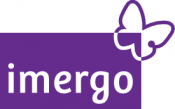The Value of Objective Opinion
Risk Principle(s): Independent Opinion; Governance; Groupthink
Risk Lessons: Risks grow when truth is suppressed. Encourage objective viewpoints, independent audits, and a culture where dissent is safe and valued.

In the complex theatre of corporate governance, where reputation, performance, and stakeholder trust are always on display, the most significant threats often arise not from external forces, but from internal blindness. The classic tale of Hans Christian Andersen’s “The Emperor’s New Clothes” is a masterclass in this very danger—the peril of groupthink, flattery, and the collective suppression of an inconvenient truth.
At Imergo, we believe that the lessons of these timeless stories are invaluable for fostering a resilient and transparent risk culture. The story begins with two cunning weavers who promise the Emperor a magnificent suit of clothes that is invisible to anyone who is unfit for their position or is simply foolish. Eager to discover who is worthy, the Emperor’s advisors, and then the Emperor himself, are shown the “fabric” and, terrified of appearing incompetent, they all praise its beauty and intricacy. On the day of the grand procession, everyone from the Emperor’s court to his subjects pretends to see the non-existent fabric, all silently fearing the judgment of others. It takes the innocent, objective voice of a child to expose the glaring reality that the Emperor is, in fact, wearing nothing at all.
The Risk Lesson: The critical need for independent and objective opinion
The fable of the Emperor’s non-existent garments underscores a fundamental principle in governance: the critical need for independent and objective opinion in risk assessment. When internal pressures, fear of challenging authority, or a desire for false consensus lead to a collective blindness, significant risks can go unaddressed or even be actively concealed. This speaks to the importance of:
- A strong, independent Internal Audit function: The Emperor’s advisors failed to speak the truth because they were dependent on his favour. Similarly, an internal audit function that is compromised or lacks independence risks becoming an accomplice to misrepresentation. The lesson here is that true assurance and accountability depend on a governance structure that guarantees the independence to speak truth to power, even when it’s unwelcome.
- The value of ‘Second Line’ assurance: Not all organisations have an internal audit function, but the need for independent oversight remains. This is where “second lines of defence” come in. These are functions such as risk management, compliance, or quality assurance that sit outside of the day-to-day business operations (the “first line”). Their value lies in providing an independent and unbiased review of risks and controls, ensuring that important truths are not ignored due to pressure or groupthink.
- The value of an external perspective: Just as the child provided an unbiased view from outside the Emperor’s court, external risk assessments bring a fresh and objective perspective. An outside party is not tied to internal politics, existing paradigms, or past decisions. They can see the ‘naked’ truth of a strategy, a process, or an emerging threat that insiders, blinded by institutional loyalty or groupthink, may miss.
- Fostering a culture of psychological safety: The greatest risk in this story wasn’t the Emperor’s vanity; it was the culture of fear that prevented his subjects from voicing the obvious. The biggest risks in organisations are often those that everyone sees but no one dares to name. A culture of psychological safety, where employees at all levels feel safe to raise concerns, offer dissenting views, and challenge the status quo without fear of retaliation, is the ultimate defence against collective blindness.
Beyond the Fairy Tale: Strategic Foresight in Action
The tale of the Emperor’s new clothes serves as a powerful reminder that an organisation’s greatest vulnerability can be its own unwillingness to face reality. It compels leaders to actively build structures and foster a culture that champions truth and objectivity.
To embody the wisdom of this fable and build a truly resilient organisation, leaders should:
- Strengthen independent governance: Ensure that key oversight functions, such as internal audit and risk committees, have direct, uncompromised lines of communication to the Board. This structural separation is a key line of defence against collective deception.
- Seek out unbiased perspectives: Regularly commission external risk assessments and strategic reviews. This investment provides a crucial check on internal assumptions and offers a clear-eyed view of your organisation’s strengths and vulnerabilities, free from internal bias.
- Champion the “Child’s Voice”: Actively encourage and reward employees who ask difficult questions, offer dissenting opinions, or point out obvious flaws that others are ignoring. Create formal and informal channels for anonymous feedback and ensure there are no negative consequences for speaking up. Dissention is not the same as disloyalty.
- Acknowledge and address flaws: Be a leader who is secure enough to hear inconvenient truths. The Emperor’s vanity was a fatal flaw; a resilient organisation is led by those who are willing to admit when they are wrong and act on objective feedback.
By internalising the lessons of this timeless tale, leaders can ensure their organisation is not parading through the streets with a vulnerability that everyone but them can see. Find out more about how Imergo can help you build a strong system of objective assurance by contacting us here.
